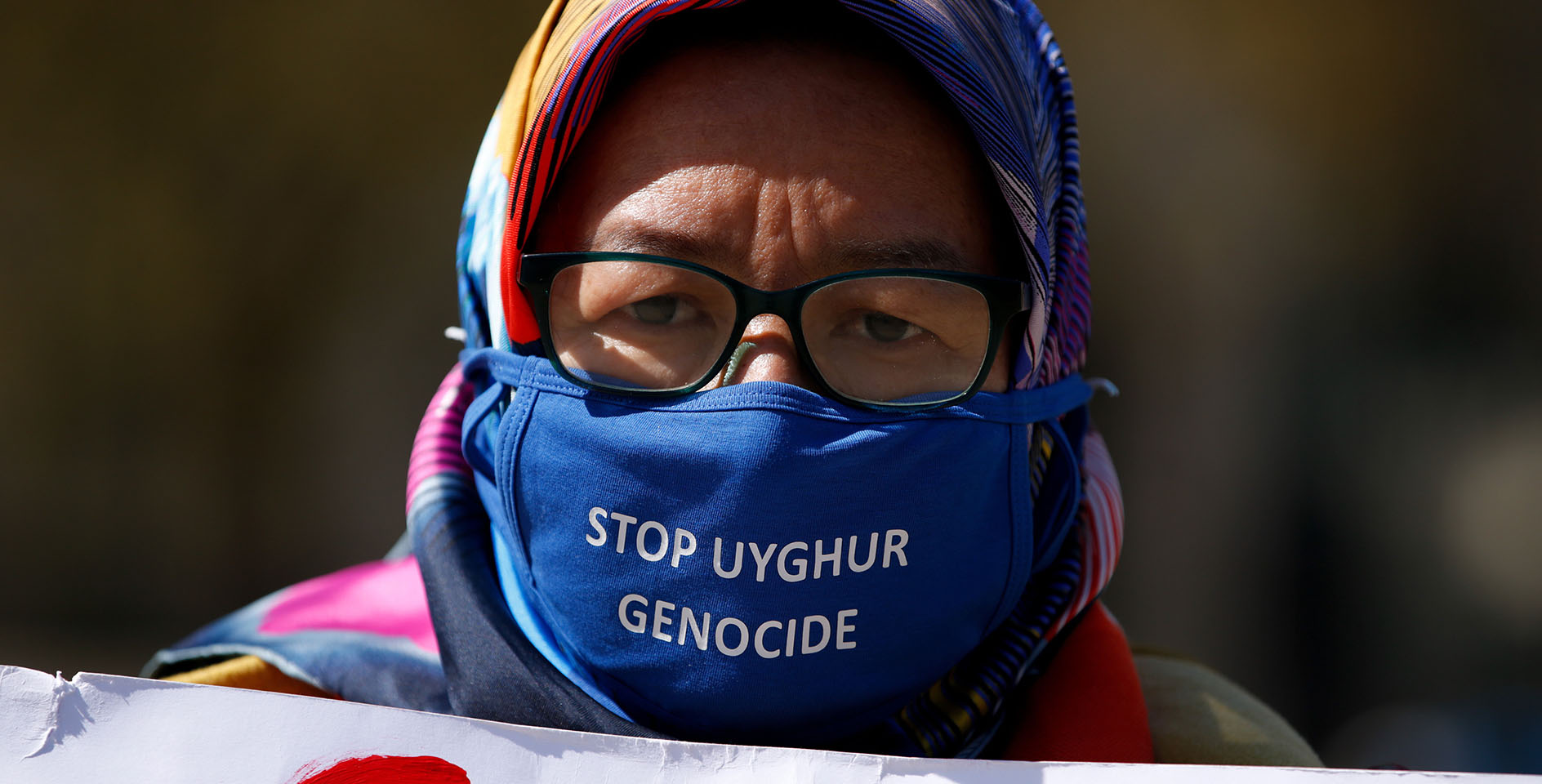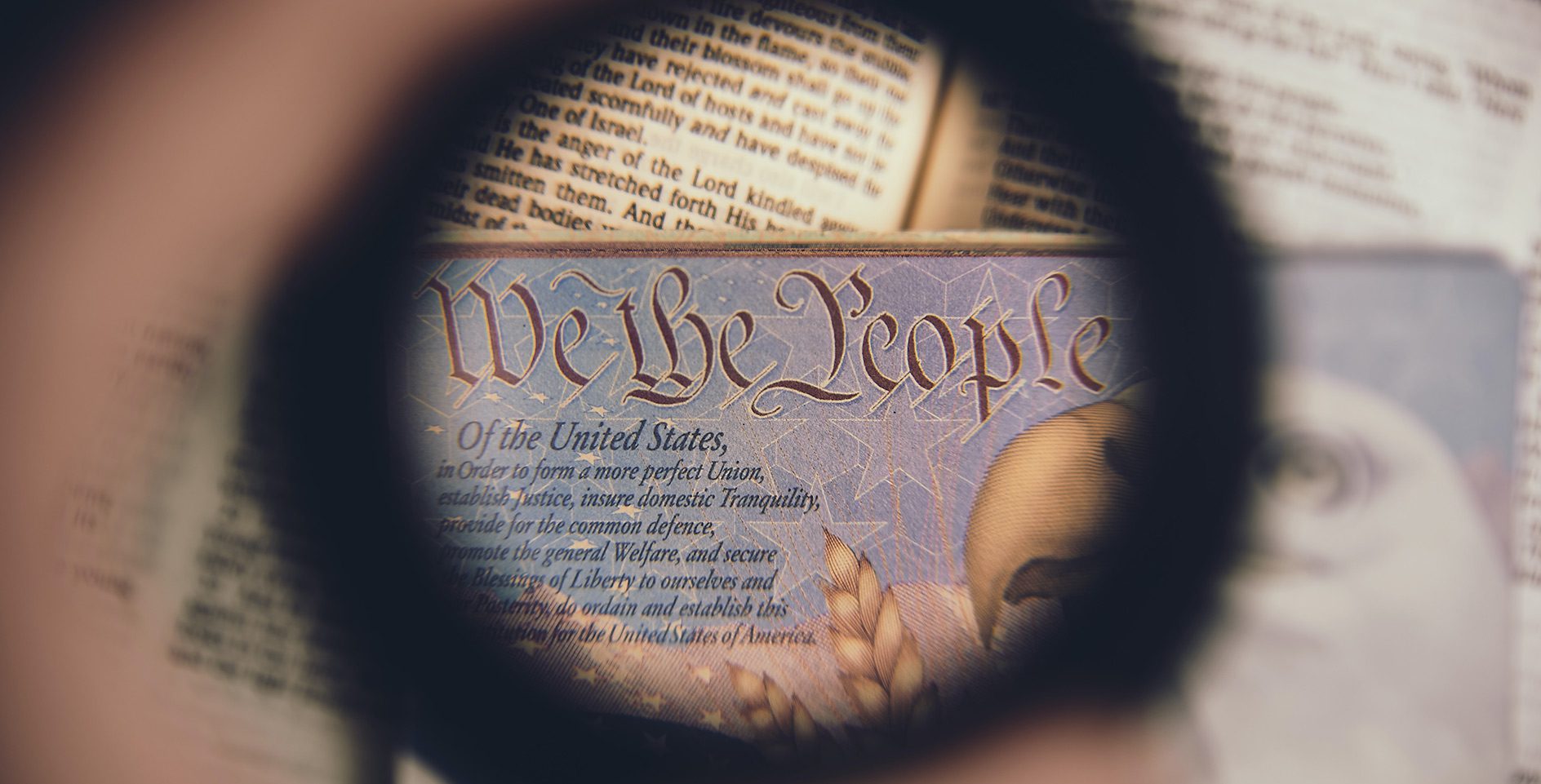The global crisis precipitated by COVID-19 has changed many things. In the United States, the drastic steps we’ve taken to deal with the pandemic have fundamentally altered our normal patterns of life. But in at least some ways, this period of hardship and struggle has brought forth the very best in humanity. Stories abound of neighbors, friends, and even strangers going to lengths great and small to serve or assist those in need. And as a society, we've developed a new appreciation for the men and women working each day to perform the essential services all of us depend upon. It is heartening to see a collective sense of gratitude not only for doctors and nurses and medical professionals, but for truck drivers and grocery store clerks and the many factory workers sustaining our supply chains.
Intolerance on display
But despite this good news, some things haven’t changed. And perhaps a prime example is the intolerance displayed toward Christians and other people of faith. We’ve already witnessed this kind of behavior on multiple occasions from New York City Mayor Bill De Blasio. Over the weekend, Corey Johnson, the Speaker of the New York City Council, put forward a statement on Twitter demonstrating the same kind of intolerance. The statement was directed toward the humanitarian organization, Samaritan’s Purse, and its CEO, Franklin Graham, specifically the beliefs about human sexuality which Graham and the organization espouse. While Johnson acknowledged that Samaritan’s Purse stepped up to meet vital needs in New York “at a time when our city couldn't in good conscience turn away any offer of help,” he has since made the determination that it is “time for Samaritan’s Purse to leave.” Johnson derided Graham as being “notoriously bigoted” and “hate-spewing,” and said without irony that the “continued presence” of Samaritan’s Purse in New York is “an affront to our values of inclusion.”
Honestly, Johnson’s words are difficult to read. Knowingly or otherwise, he is not merely disparaging Graham and the employees and volunteers with Samaritan’s Purse, but millions of Christians who also hold to the church’s historic teaching on human sexuality. As our culture rushes to embrace the sexual revolution, to affirm sexual libertinism, and to uproot any obstacles to sexual expression, it seems that dissenters to these efforts are to be written off as collateral damage. That’s unfortunate for so many reasons, but especially so because that kind of calloused dismissal doesn’t even meet Johnson’s own moral standard.
In denouncing Graham and Samaritan’s Purse, Johnson stated that their presence in the city he serves is an affront to their “values of inclusion.” This is nothing less than cognitive dissonance on display. How it escapes Johnson that true tolerance runs in both directions is hard to fathom. But again, this is nothing new. To advance the sexual revolution, words like inclusion have taken on a very specific meaning—inclusion is about affirming what one approves while condemning what one despises. In this case, Johnson plainly stated that anyone who disagrees with his views of sexuality doesn’t merit inclusion, or really seem to matter at all.
In his statement, Johnson also stated that New York is a city that “values diversity and compassion for all.” Surely these are laudable traits. Yet sadly, these words also ring hollow. Clearly Johnson thinks that only a certain kind of diversity is valuable and that only those with the correct beliefs are worthy of compassion. Apparently he’s willing to cast aside not only Graham and Samaritan’s Purse but the countless New Yorkers who hold the beliefs he so openly ridicules.
Hated, but continuing to serve
I wrote last week that the church will never give up its position on human sexuality. The upshot of that argument is that it isn’t really up to us because God has clearly spoken about these issues. The church doesn’t have the ability to change or reinterpret what God has clearly said. And all those who seek to live their lives in submission to Jesus and under the authority of God’s Word will never reject the sexual ethics set forth in the Scriptures—regardless of the nature or duration of pressure to do so.
Analyzing Johnson’s response leaves one pondering many questions. Can he not see the stunning incongruence between the values he espouses and the way he disparages the very people who have voluntarily stepped up to provide critical services and meet vital needs in the midst of an unprecedented threat? Indeed, it strains credulity to think that those motivated by “hate” as Johnson alleges would willfully martial their resources and risk their health and safety in order to serve indiscriminately the people of New York. Does this really strike him as bigotry? If I were able to speak with Johnson, I would point out that one could hardly wish for better enemies.
Christians will never be forced to choose between fidelity to Jesus and serving our neighbors in need (Christian or otherwise), regardless of how we are treated in return. In fact, this is the task before us: to show the world the love of Christ (1 John 4:7-21).
But as the people of God, we realize that Johnson is not our enemy, nor anyone else made of flesh and blood (Eph. 6:12). One need not agree with Franklin Graham’s politics or theology to recognize what motivated the organization he leads to volunteer to serve the people of New York; it was not hate, but love. And the sad thing is, in dismissing their religious convictions, Johnson overlooked the very thing that motivated Samaritan’s Purse to serve his city in the first place. In offering aid to New York, Samaritan’s Purse sought to put the gospel on display. In their service and sacrifice, they were being exactly what Christians are called to be, the hands and feet of Jesus.
And this happens all the time. Chick-Fil-A is another organization that is frequently maligned for being “anti-LGBT.” Yet in the aftermath of the awful mass shooting at the Pulse nightclub, one of the best known gay bars in Orlando, Chick-Fil-A employees at multiple restaurants voluntarily went into work on a Sunday (the day Chick-Fil-A is traditionally closed in order for its employees to worship and spend time with family) to prepare and serve free food to those waiting to donate blood.
Christians are people of conscience and conviction. But we do not hate people—regardless of how they feel about our beliefs. Not only that, but it is our faith and convictions that motivate us to show love, compassion, and mercy to those in need. It is sad to see Christians reviled because of their beliefs, but we should not be surprised when such takes place. Indeed, Jesus told us so (John 15:18). One thing we must remember, though, is that whatever worldly power or influence those who revile us may wield, our gospel wields the power of God (Rom: 1:16). Even those who oppose us most fiercely at any given moment, may well find themselves overcome by the grace of God found in the gospel. Some who revile us now will may soon become our brothers and sisters.
It seems safe to say that in the future our beliefs, especially those concerning human sexuality, will draw more scrutiny, not less. But there is no shame in holding fast to these beliefs. Christians will never be forced to choose between fidelity to Jesus and serving our neighbors in need (Christian or otherwise), regardless of how we are treated in return. In fact, this is the task before us: to show the world the love of Christ (1 John 4:7-21). Take heart, brothers and sisters—in this world you may be called a bigot or worse, but Jesus has overcome the world (John. 16:33).










